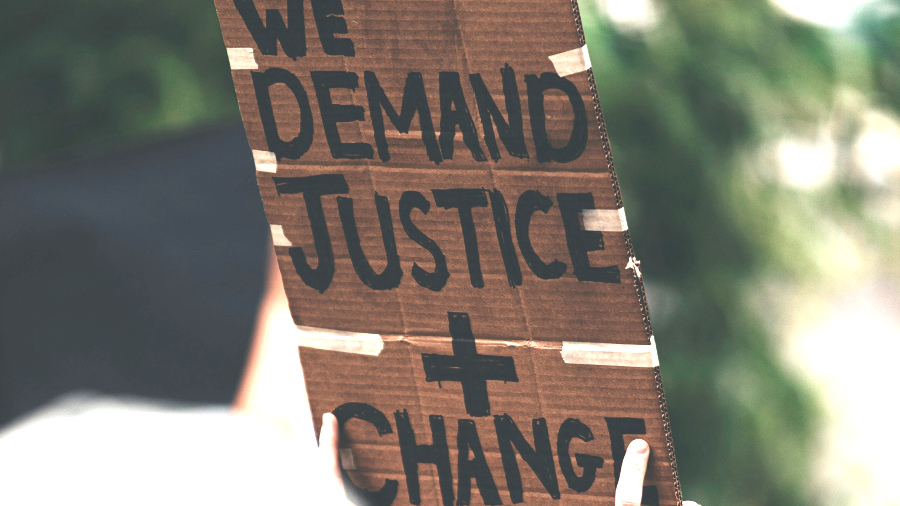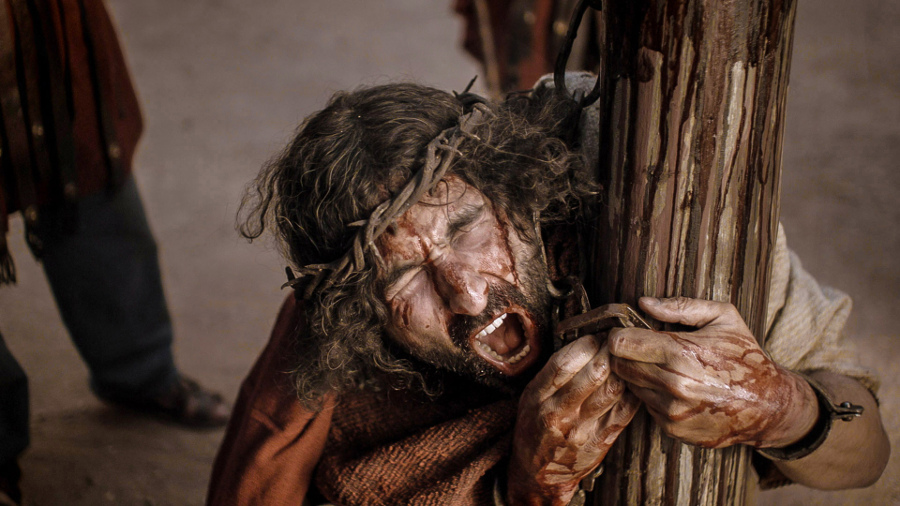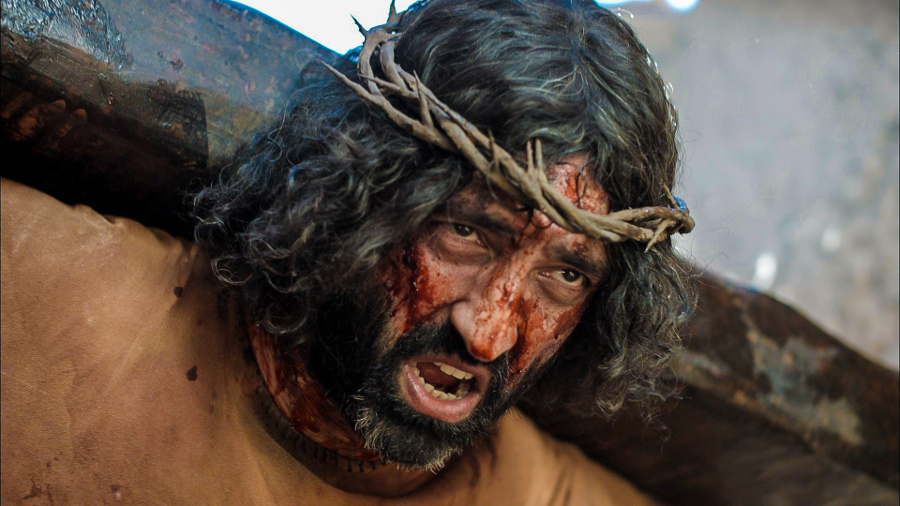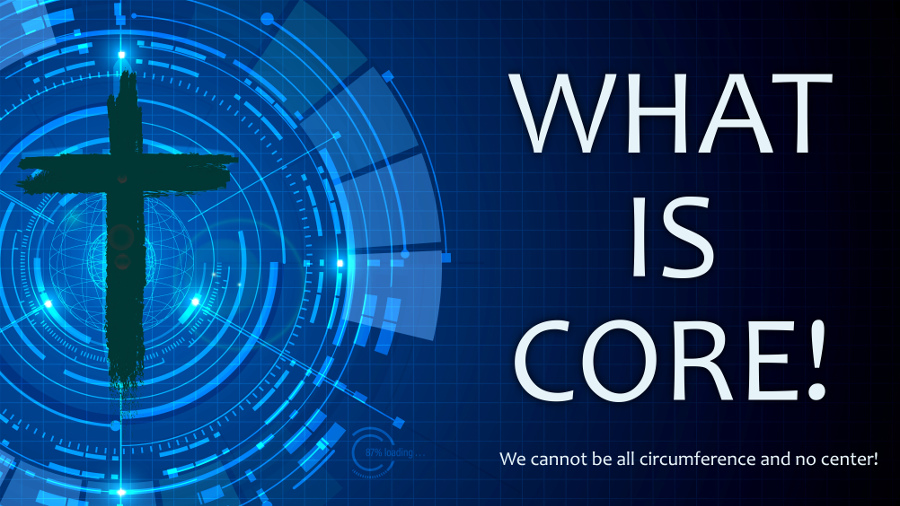Something is wrong here. Something is horribly wrong. We know it. We can feel it in our bones. Our world is broken, shattered in a place that feels unfixable. We don't always notice or realize this truth, but our world's wounds feel incurable.
We previously emphasized this brokenness over the several weeks in ToGather.church, our daily devotionals, and our cluster of articles.
The bigger question for us is how to help mend the brokenness and live the way of Jesus in our world.
How do we focus our attention on what is most important - most redemptive - and not get lost in all the silliness that social media religious posts seem to devolve into becoming?
When some unspeakable thing is done to precious children, all our illusions about goodness and life get shattered once again. Our continuing racial inequities and uneasiness remind us of this brokenness. And, of course, the specter of COVID-19 hanging over the world and impacting how we do things is a constant, disturbing reality.
We must look at our world as it is - profoundly broken and in need of something and Someone more than us. Oh sure, some will buy a gun to protect themselves and their families, while others will try to have all guns banned (depending on our politics and convictions). Of course, both solutions are merely Band-Aids placed on the gaping wounds of our world. We all know this in that deep place of our souls where brutal honesty resides.
Something is wrong here. Something is horribly wrong. We know it. We can feel it in our bones. Our world is broken, shattered in a place that feels unfixable. We don't always notice or realize this truth, but our world's wounds feel incurable.
Yes, our world is often a great place to live. We don't want to discount the beauty of our universe, the preciousness of friends and loved ones, the kindnesses and sacrifices of our first responders, medical professionals, and educators. Still, there is brokenness we cannot escape when we hear of the brutality in Syria; the suicide bombings in Iraq; the rapes, murders, and abuse in our communities; mass gun violence and racial hatred; sex-based people trafficking; racial prejudice and inequities; recent murders of law enforcement; along with the genocides in Rwanda, Bosnia, Congo, and Liberia. Unfortunately, the list goes on and on.

Something is wrong here. Something is horribly wrong. We know it. We can feel it in our bones. Our world is broken, shattered in a place that feels unfixable. We don't always notice or realize this truth, but our world's wounds feel incurable.
We feel our planet lurch, weep, moan, and groan with every earthquake, volcanic eruption, tornado, wildfire, devastating hurricane, and destructive tsunami. We feel our world shudder in fear as we anticipate the newest pandemic or the threat of weapons of mass destruction, threats of biological warfare, or the latest crescendo in nuclear warhead production. We feel the people of our world wince with broken hearts as we look for ways to battle cancer or feel the loss of someone who succumbs to the abuse they've heaped on themselves through bad diets, poor exercise, and unhealthy addictions.
Something is wrong here. Something is horribly wrong. We know it. We can feel it in our bones. Our world is broken, shattered in a place that feels unfixable. We don't always notice or realize this truth, but our world's wounds feel incurable.
The Bible says our world is "subjected to frustration" because it is "in bondage to decay" and that "We know that the whole creation has been groaning as in the pains of childbirth right up to the present time" (Romans 8:19-22).
We sense this is true. We cry out with our creation in agony when we see the searing pain in the face of a parent whose child has been murdered or a spouse who has lost a soulmate to an incurable disease. We agonized with a family who has lost everything in a storm, fire, or flood - including family members, pets, homes, and pictures that preserve the memories of what is now lost and gone. Yes, we share our creation's cry. We feel our world's ache and moan over what is broken.

And what is this cry? What is this desperate moan of our world and its human inhabitants?
We need help. We want a fixer. We yearn for a redeemer. We long for Savior. We cry out with an agonizing moan, "God, if you are there, please help us, for we cannot fix what is most broken about us and our world!"
Our ache is not new: it is the moan, the cry we have heard in thousands upon thousands of stories told over the centuries. These awful stories are trumped by acts of sacrificial love in the face of unjust suffering and people doing the next right thing to bless others no matter the cost. Every culture has these stories. Movies, books, theatrical productions, stories, myths, poetry, musicals, and sagas tell these stories.
These redemption stories move us. They reach past our protective barriers and overwhelm the emotional dams we've placed to safeguard our hopes and hold back our tears. They speak to something in our soul and move us in ways beyond our ability to describe. See something like Les Miserables, then you know what I mean. These stories touch something primal inside us - something placed in our DNA by our Creator to prepare us for the ultimate redemption story.
These stories acknowledge the brokenness of our world, our relationships, and our systems. Yet somehow, through some power beyond normal human strength, a hero arises, faces all the brokenness, and bears intense pain to ransom others out of its darkness.
These redemption stories are really "Christ-stories" told in anticipation and longing for the Jesus that God sent us. The groaning of our world and her people echoed throughout history in anticipation of his coming. These stories prepare our hearts for the one real hope our broken world must have to be healed at its center.

These "Christories" speak about the one who made it all with beauty, specificity, and meaning. This was God's world before humanity invited hell in to ruin it and to stain it with evil's residue. Then, a loving and sacrificial Creator came to redeem this marred and messed up world and bring it back from the brokenness caused by human rebellion. The all-powerful One chooses to be the vulnerable one to awaken the world from its sleep-march toward destruction. He came to his own to allow his own to accept or reject him. When they rejected him, he rescued them anyway - at his cost and pain (John 1:10-11).
These are "Christories" because everything ultimately flows back to this one reality: Jesus is the CORE truth of everything good and right and full of hope (John 14:6; John 4:12).
Listen to the Bible speak about Jesus as its CORE truth:
All God's promises find their "Yes!" in Jesus (2 Corinthians 1:18-20).
He is the ultimate Message of God and is God, and nothing that has been made in our good and beautiful universe came into existence without his fingerprints on it (John 1:1-3).
While God has spoken in many ways in the past, his fullest and most complete message came to us when God sent his Son, who was himself, God, the divine one of heaven living with us and among us as one of us (Hebrews 1:1-3).
The Son existed before all created things. The Son created everything, and everything holds together in him. Without him, there is nothing (Colossians 1:15-17).
The Son, the Message of God, came to us - the very people and things he created - and we rejected him. Yet the ones of us who accepted him, the ones who believed in him, were given the power to become God's children (John 1:10-14).
That's why the Father sent the Son - because he loves us and wants to save us from the brokenness of our world and give us new life (John 3:16-17).
But this salvation, this bringing us back to God, was costly: it cost Jesus his life's blood in the sacrifice of a real human body to save us from the mess of our world (Colossians 1:19-22).
God loved us so much that he took our sin and placed it upon his Son so that we could be made clean and begin life as a new person in a new world (2 Corinthians 5:17; 2 Corinthians 5:21).
We are on a journey to rediscover What is Core! about our Christian faith and what it means for us as we seek to live as followers of Jesus. But at the center of What is Core! is Jesus - who he is, what he has done, and what it means for us.
As we focus on What is Core! our existential reality, the ultimate truth running around in our souls, reminds us that nothing can speak to the ache in our soul and the cry of our hearts. No religion, beauty, created power, philosophy, song, person, or even the Scriptures themselves can speak away the brokenness in our souls and the wounded cries of our hearts. Nothing and no one can fill that God-shaped hole in each of us. Only Jesus can.
Jesus is our CORE. And at the center of this CORE, there is something we must believe, or everything else fades into emptiness:
For what I received I passed on to you as of first importance: that Christ died for our sins according to the Scriptures, that he was buried, that he was raised on the third day according to the Scriptures... (1 Corinthians 15:3-4).
Each of the phrases in this passage sizzles with importance. Each thought shimmers with the profound simplicity of God's grace expressed for us in the willing self-sacrifice of the Son and his victory over what holds us in fear, sorrow, and brokenness (Hebrews 2:14-15; 1 Corinthians 15:54-58).
This is the heart of What is Core! This is what is "first importance" in everything. So the questions - whether for each of us as individuals or for all of us together as God's family - are really quite simple:
- Do I believe these truths about Jesus?
- Do I let this change who I am?
- Do I let this guide me to what is important in life, in fellowship, in worship, and in doctrine?
If we cannot answer "Yes!" to all three of these questions, then we have really said "No!" to what can reach into our brokenness and bring light to our darkness.

Summary of our series, "What is Core!"
Over the next few weeks, we will see how the matters of central importance - What is Core! - connects to central practices and tenets that Jesus calls us to live. We will also see that the first disciples put into place these practices in their response to the Good News of Jesus. I hope you will join me. For me, these are messages of ultimate importance.
When referring to What is Core, I am referring to several particular passages in the New Testament that claim, or their settings and timing claim, to give us the most important truths in Scripture: what Jesus did to save us as the foundation with the great commands, the great meal, the great commission, and the great prayer, helping us integrate what Jesus did into our lives.
- In the first passage, 1 Corinthians 15:1-7, Paul emphasizes that Christ dying for our sins according to the Scriptures, being buried, and being raised on the third day according to the Scriptures is the truth of first importance! It is the truth, or message, that Paul preached, the Corinthians believed, the truth on which they built their lives, the message passed on by authoritative teachers, and that he also passed on with authority. This is our foundation for the seven principles that grow out of our other CORE messages.
- In our second passage (Matthew 22:37-40), Jesus indicates that the most important command from God is, to love God over and above all things and all beings, and then Jesus puts another command along with it, loving our neighbor as we love ourselves.
- The the third passage, Matthew 25:26-30, tells us about Jesus' last meal, the Passover meal, before his death. At this meal, Jesus calls his disciples to remember him and his sacrifice by communing together with each other.
- The fourth passage comes from Jesus' last words to his disciples before leaving the earth in Matthew 28:18-20, where Jesus speaks with all authority and calls on his disciples to make disciples by going, baptizing, and training these new disciples to do the same.
- Our final passage is John 17:1-26, where Jesus prays for himself and intercedes for his disciples and us who believe him today, asking that we commit ourselves to unifying so that the world can believe the Father sent him.
The claims of these three passages remind us that some truths are most important because they are most central, most core, to the truth and will of God. These truths should inform, order, and make important other truths in Scripture. We are saying these passages help us understand What is Core!
Which brings us to the questions we want to ask each week of our series:
- Do I believe this?
- Do I let this change who I am?
- Do I let this guide me to what is important in life, in fellowship, in worship, and in doctrine?
How can we not?

- Jesus!
- Believing
- Disciple-making
- Going
- Baptizing
- Training
- Loving
- Communing
- Worshiping
- Finishing
Special thanks for the use of images related to Jesus' ministry from The Lumo Project and Free Bible Images.













Comments
Have thoughts on this article? Leave a comment